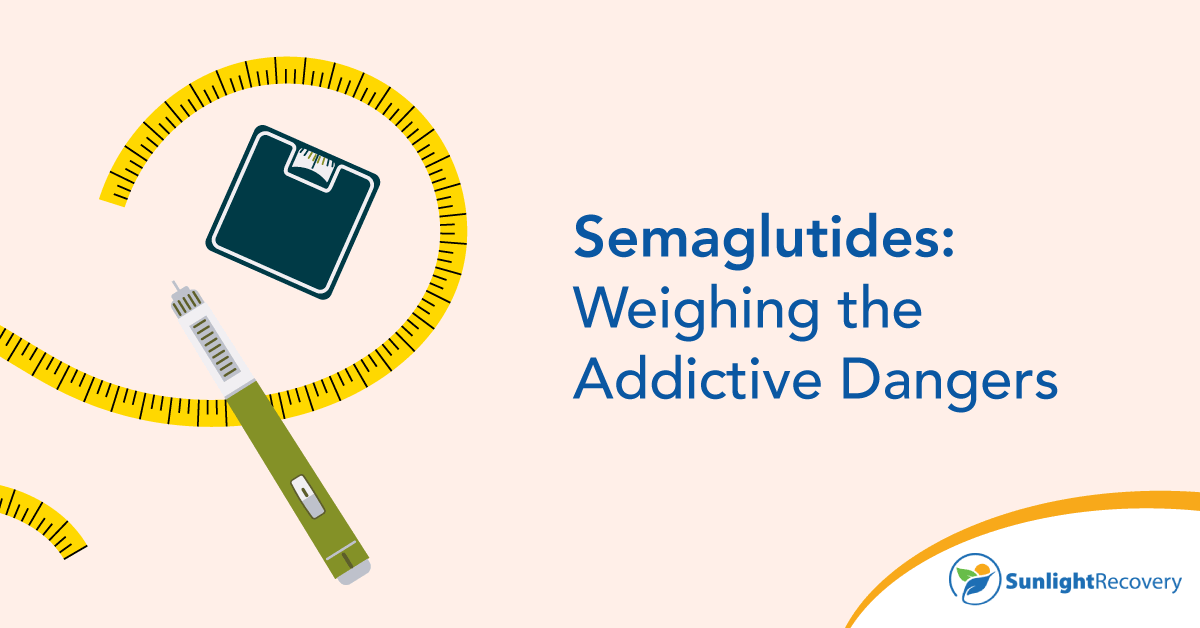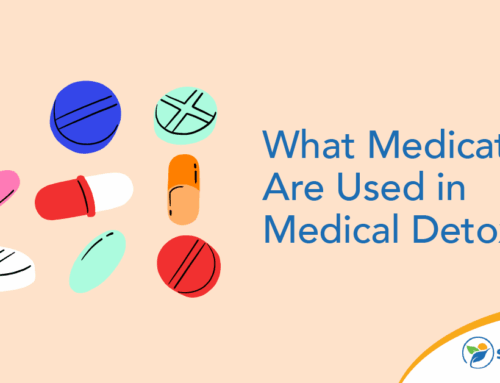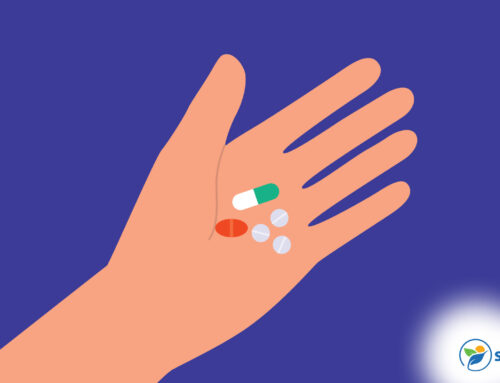While diets and medications to “fix” the obesity epidemic have been a part of American culture for decades, no weight-loss drug ever came close to Ozempic’s acclaim. First used in the treatment of Type 2 Diabetes, semaglutide medications are growing in popularity as weight-loss aids. Celebrities and influencers alike are hailing the drug as a weight management breakthrough. The drug’s increased demand is raising serious questions about Ozempic misuse and its potential to cause addiction or dependence.
What Are Semaglutide Medications?
Semaglutide was originally used to treat Type 2 diabetes by regulating blood sugar levels. The drug mimics the action of the hormone glucagon-like peptide-1 (GLP-1), which slows digestion and encourages insulin release in the stomach.
Initially sold under the brand name Ozempic, one of the medication’s side effects was a decrease in appetite and subsequent weight loss. This caused some doctors to start prescribing Ozempic off-label as a treatment for obesity. In 2021, the FDA approved Wegovy, a version of the drug with a higher GLP-1 concentration, for weight management purposes.
Most semaglutide drugs are administered as a weekly injection, with doctors gradually increasing the dosage over time. However, one brand offers the medication in pill form, sold under the name Rybelsus.
For many, semaglutide medications offer a promising solution for managing both diabetes and obesity. The CDC estimates that close to 42% of adults in the United States suffer from obesity, so there’s no shortage of people who want to try this new and trendy “miracle” solution.
These medications are receiving widespread attention for their effectiveness compared to other weight management options. Semaglutides are considered safer than older medications used to suppress appetite, such as the dopamine agonist phentermine and serotonin-norepinephrine reuptake inhibitor (SNRI) sibutramine, and less invasive than bariatric surgery. However, despite their fame, prescription semaglutide medications have a long list of possible side effects and safety concerns when used solely for weight loss by nonobese individuals.
Can Ozempic Misuse Cause Addiction?
Ozempic, Wegovy and other semaglutide medications aren’t believed to be as addictive in the traditional sense as other prescription drugs such as benzodiazepines. They don’t create the sense of euphoria or cravings typically associated with addiction.
But as the media continuously promotes these drugs and the dramatic results individuals can achieve, there’s growing concern about the potential for Ozempic abuse. Some people may view semaglutide as a quick fix for weight loss and may not hesitate to risk taking it without a prescription. Nondiabetic individuals are notably more at risk of misusing the drug.
Semaglutide drugs are relatively new, so there’s a limited amount of research completed on their long-term safety for weight management. However, one study found that semaglutide has 3.5 times higher rates of illicit use compared to similar medications. It’s also been associated with fatalities in 3.3% (273) of reported adverse event cases.
The findings suggest a potential concern for withdrawal effects, as symptoms were more frequent with semaglutide than with other GLP-1 receptor agonists. Most adverse side effects are related to gastrointestinal issues.
Is Semaglutide a Controlled Substance?
No, but you need a prescription from your health care provider to purchase the medication from a pharmacy. However, due to its reputation as a miracle solution to obesity, there’s a concerning number of sellers offering illegal generic or counterfeit versions of the drug.
Semiglutide’s widespread popularity can’t be overstated. That’s why a growing number of individuals who don’t suffer from obesity procure it from black market sources. The high cost of the medication, supply chain issues and inconsistent coverage from some insurance companies may also lead patients to make illicit purchases. The FDA has issued warnings regarding counterfeit semaglutide sold online, which can contain harmful substances or inaccurate dosages. Taking semaglutide medication bought from an illegal marketplace can result in unknown side effects and may even put your life in danger.
Other Potential Side Effects
Taking drugs such as Ozempic without medical supervision heightens the risk of adverse effects such as:
- Digestion issues. Some of the most common side effects include vomiting, diarrhea and constipation.
- Gastrointestinal conditions. Less frequent but dangerous side effects are pancreatitis and gallstone attacks.
- Changes in appearance. Commonly referred to as “Ozempic face,” the effects of rapid weight loss may include a noticeable increase in wrinkles and a saggy, sunken appearance.
Using Semaglutide Under Medical Supervision
Of all the medications in its category, semaglutide’s potential for misuse and addiction is the highest. If you’re considering trying this drug to lose a few pounds, you must speak to your health care provider first.
Doctors prescribe these medications for specific health conditions and monitor patients’ progress to ensure safe use. Your doctor can assess the medication’s appropriateness based on your overall health and will likely require regular check-ins to evaluate your progress, adjust the dosage and watch for any adverse effects.
While you take this drug, try to maintain realistic expectations about what a semaglutide medication can do. While it may aid in weight loss, long-term success usually requires permanent lifestyle changes, such as eating a balanced diet and increasing physical activity.
Weight Loss Alternatives for At-Risk Individuals
Semaglutide medications are highly effective, but they aren’t suitable for everyone. People who may be at risk of misusing semaglutides should talk to their doctor about alternatives for achieving sustainable weight loss.
Lifestyle changes, such as eating a healthier diet and getting regular exercise, remain cornerstones of long-term weight management. If you’re struggling to lose weight, consider working with a dietitian or nutritionist to develop a personalized eating plan. Your health care provider can help you decide what weight loss strategies are safest and most effective, especially if you’re at risk for misuse.
When used correctly, semaglutide can be a helpful tool in the battle against obesity and type 2 diabetes. However, this is a relatively new prescription drug, and not enough is known about its long-term safety.
Mental Well-Being Beyond Weight Loss
Making healthier choices for your body starts in the mind. Contact Sunlight Recovery today to learn how our robust treatment plans can help you heal your relationship with food.







